Facing Age Bias with Grace, and a bit of Sass!
What is age bias? Can we recognize it? And more importantly — how do we respond without losing our cool or our self-respect?
Age bias, or ageism, is one of the last socially accepted forms of discrimination. It’s the assumption that people are less capable, less valuable, or less relevant simply because of their age, especially if they’re older.
We often hear about sexism and racism (and rightfully so), but ageism tends to hide in plain sight. It creeps into conversations, decisions, and even casual jokes. And unless we’re actively looking for it, it can easily go unnoticed, even by those experiencing it.
But once you see it, you can’t ‘unsee’ it.
Spotting Ageism Around Us
If you're over 50 (or even 40 in some cases), you've probably already felt the sting of age bias. Sometimes it's subtle. Sometimes it's loud and clear. Here’s where to look for it:
Everyday Language:
Phrases like “You look great for your age!” or “Aren’t you too old for that?” may seem harmless, even complimentary. But they subtly reinforce the idea that aging is negative. That competence and vitality are tied to youth.Assumptions:
Ever hesitated to try something new because you thought, “Maybe I’m too old for this”? Or heard someone assume you wouldn’t be interested in an activity based solely on age? That’s bias, too. And it creates unnecessary limits for everyone.Media Representation:
Look around: How are older adults portrayed in books, movies, and on social media? Are they dynamic and diverse? Or mostly shown as frail, cranky, or stuck in the past?Condescending Questions:
“Do you use email?” “Do you have a smartphone?” “Need help crossing the street?” These often come from well-meaning people — but they’re based on assumptions that older people are helpless or behind the times.
It’s all subtle, often wrapped in politeness or humour. But that doesn’t mean we should let it slide.
A Personal Story: What Ageism Looks Like at Work
A few years ago, I came out of retirement for a summer consulting project in Ottawa. IBM, my long-time client, reached out to me in Thailand and made me an offer I couldn’t refuse.
I joined a skilled team of technical consultants, experts like myself , and was excited to be back in the game. But something strange happened.
One team member behaved oddly toward me from the get-go. Cold, dismissive, subtly undermining my input. At first, I chalked it up to personality differences. But after too many awkward exchanges and second-guessing, I had to face the obvious: this person saw me only as “the old one.”
It didn’t matter that I had a Ph.D., an MBA, and decades of experience, including high praise from IBM and other clients. None of that was visible to them. All they saw were the wrinkles.
I spoke to a colleague who’s also a tech consultant, and she confirmed she’d seen the same thing. A quiet bias that tries to discredit you before you even speak. It’s frustrating, disheartening, and more common than we’d like to admit.
So What Do We Do?
Handling ageism can be tricky. Confront it too directly and you’re labeled as bitter, aggressive, or overly sensitive, which (ironically) reinforces the stereotype.
So what’s the alternative? How do we protect our dignity, correct the bias, and stay empowered, without escalating the situation?
Here are five strategies that have worked for me:
1. Smile
Yes, it sounds counterintuitive. Why smile when someone is being dismissive?
Because it immediately softens the mood. It disarms tension and signals confidence. A calm, pleasant demeanour reminds people you’re not threatened, nor threatening. It can even make the offender reflect and recalibrate.
2. Stay Cool
On the inside, you might be boiling. But on the outside stay calm, cool, and collected.
People who exhibit bias often want to provoke a reaction that validates their assumptions. Don’t give them that satisfaction. If you maintain composure while they act small, it becomes clear to everyone where the real weakness lies.
3. Say Thank You
Respond with polite acknowledgment:
"Thanks for your observation."
"I’m sorry you feel that way."
"Is there anything I can do to assure you I’m capable?"
This flips the script. It exposes the assumption and puts the burden back where it belongs, on them.
4. Apologize (with a wink)
When someone ignores you or talks over you, say something like:
"I’m sorry, was I too quiet?"
"Would it help if I repeated that more slowly?"
Do it with a smile. This subtle call-out draws attention to their behaviour without sounding combative. If they continue to dismiss you, it becomes obvious who the real problem is.
5. Feel Sorry for Them
Seriously. How sad must it be to write off an entire demographic?
Anyone who clings to outdated stereotypes is missing out on friendships, mentorship, and wisdom. Pity them… and then move on with your fabulous life.
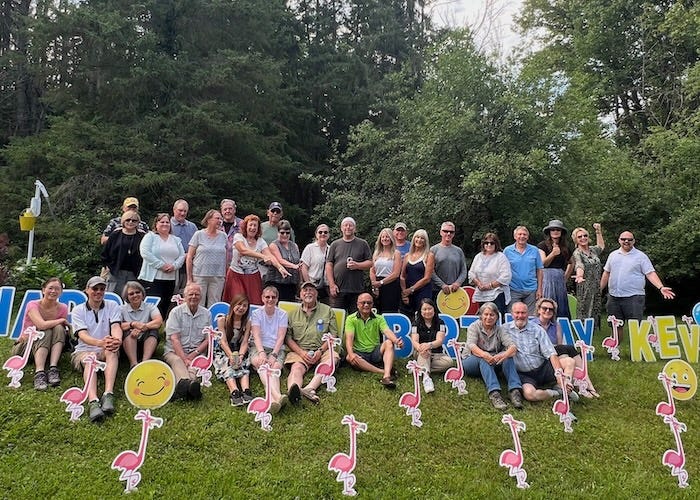
A Final Thought on Bias
Bias is rarely about you. It’s about the other person’s limited worldview.
They see your age, your clothes, your gender, your skin colour, and assign a story that has nothing to do with who you actually are.
So keep being your brilliant self. Let your work, your voice, and your presence, do the talking. And if they still don’t get it?
Well, you know what they can do with their bias — and it’s nowhere sunny.
Adding a new slant to my interview mix: Successful Retirees
While I’m back in Canada for the summer, I’ve been reflecting on something important: the many ways people are transitioning from work to retirement, and what “success” looks like in that chapter.
Some people flounder. Others thrive.
I want to focus on those who are thriving not just on Koh Lanta, but anywhere on the planet. What did they do pre-retirement to prepare? Maybe nothing? Let’s find out.
I’ve already got a handful of great Koh Lanta expat interviews “in the bag” (there is a super one below!). But now I’m also introducing a new twist: retirees who are finding joy, purpose, and connection, even if they’re not living on a beach in Thailand.
Are you happy in retirement? I’d love to hear from you. Let’s do a virtual interview. Your story might be just what someone else needs to read.
Comment below, email me (perleyann@perleyann.com), or reply to this email/newsletter. I can then set up a virtual or in-person meet.
What’s Next?
In my next newsletter (coming August 9th), I’m diving into the ever-relatable topic of procrastination.
Yes, we all do it. Sometimes it works out. Sometimes it sabotages us. Why do we procrastinate? When is it helpful, and when is it harmful?
I’ll share my thoughts, and a few tricks that helped me stop putting things off.
Until then… stay bold, stay curious, and keep proving that age is just a number.
It’s all good!
🇳🇱 Meet Marieke Kraaijeveld-van Litsenburg
Age: 62
From: The Hague, Netherlands
Living in Koh Lanta since: 2019
Marieke Kraaijeveld-van Litsenburg isn’t one to sit still. Describing her as energetic is an understatement. In fact, if you’ve spent any time on Koh Lanta, there’s a good chance you’ve crossed paths with her, or at least heard about her famous carrot cake.
Marieke is one of those rare people who seems to be everywhere at once: organizing events, baking for fundraisers, leading beach cleanups, hosting animal rescue tours, and somehow still managing to open her home to friends and volunteers for big dinners by the sea. She does it all with a smile, and a kind of infectious energy that pulls people in.
When I sat down to chat with her, it quickly became clear why she’s so well-loved in the community.
A Life of Movement
Originally from The Hague in the Netherlands, Marieke has always lived an international life. She and her husband Huib have been together for more than 37 years. Throughout their journey, they’ve lived in some of the world’s busiest cities, with two and half years in bustling Bangkok.
Each move came with its own challenges and adventures. But after years of city life, the couple began to crave something different, something quieter, warmer, and a little more grounded.
Koh Lanta had long been a favourite getaway for them, a place they returned to again and again. When Huib’s job ended in Bangkok, they both knew that heading back to The Hague wasn’t the right fit. “We loved our life abroad,” Marieke explained, “but we didn’t want to go back to a cold climate or a pace that didn’t suit us.”
So in 2019, they made the leap and moved to Koh Lanta. Initially it was only temporary, but now they are now settled in full-time.
Finding Their Place
Their early years on Koh Lanta were spent getting to know the island properly. “We didn’t settle right away,” Marieke said. “We tried a few different areas to figure out what suited us best.”
Eventually, they fell in love with a house near Long Beach. It was during the pandemic, and many properties were sitting vacant and for sale. They found one with good bones and decided to make it their own, renovating it to include proper swimming pool where you could actually have a good swim workout. The renovations also included cozy guest rooms, perfect for when their sons and their families come to visit.
It’s a peaceful place, with views out over the Andaman Sea and a cool breeze drifting through. For Marieke, the location couldn’t be better. She’s minutes away from Lanta Animal Welfare, where she spends several days a week volunteering, and close to the island’s best restaurants. For Huib, it’s an easy hop to his favourite paddle-ball court.
A Community-Focused Life
While many people come to Thailand to retire and take things easy, Marieke had other ideas. “I like being busy,” she told me. “I don’t have a routine, and I love that. Every day is different.”
And she truly makes the most of every day. At Lanta Animal Welfare, she’s become a vital part of the team, leading tours and helping spread the word about the charity’s work. She’s also deeply involved in the local beach cleanup efforts, organizing events, rallying support, and connecting with businesses to build a cleaner, more sustainable island.
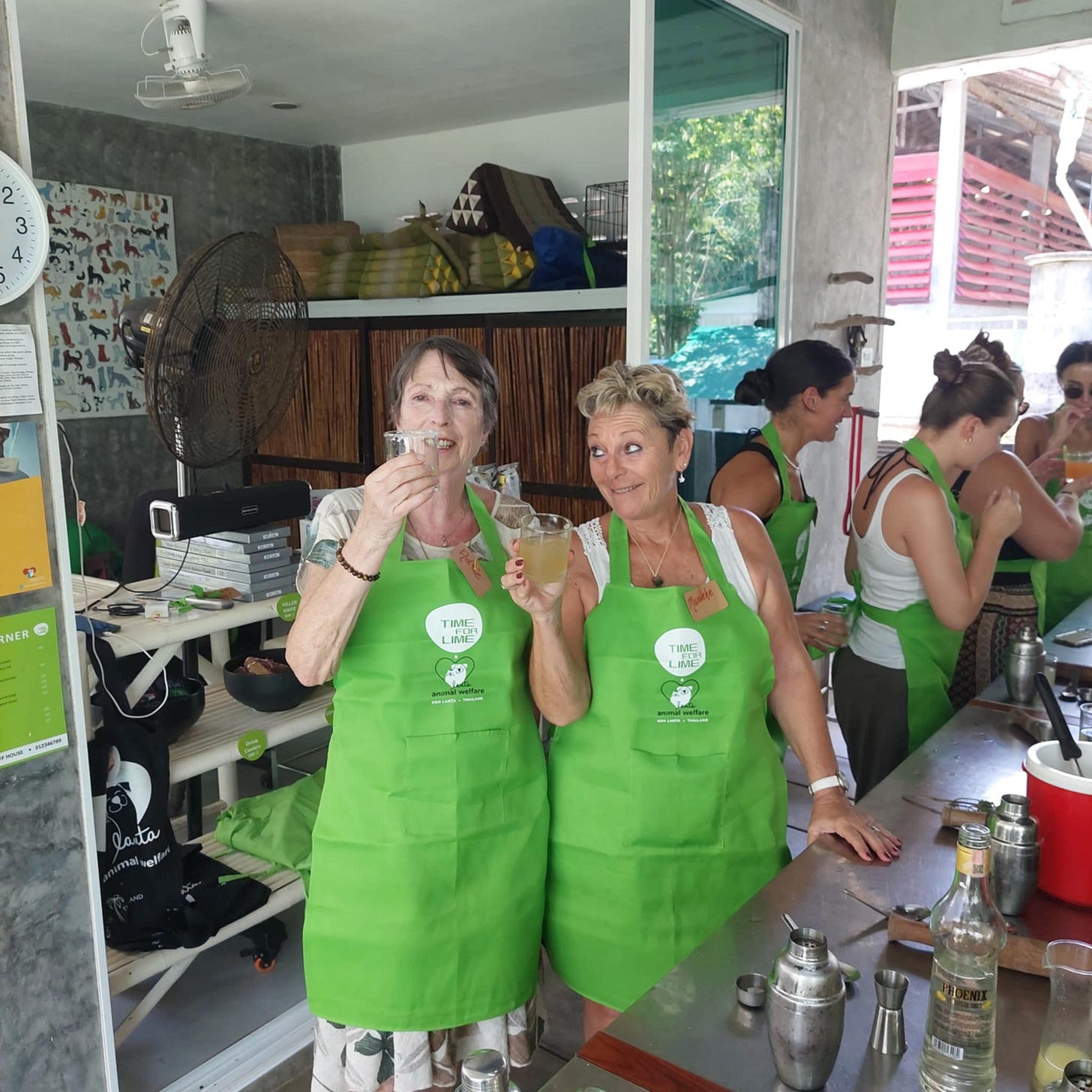
And then there’s her cooking. Marieke is a generous host and a passionate home chef. She loves nothing more than preparing a big meal, opening up her home, and welcoming people in. “It’s one of the best parts of living here,” she said. “I can cook for a group, serve dinner outside, and everyone can jump in the pool if it’s too hot.”
One night a month, she invites the volunteers from the animal rescue centre over for a home-cooked dinner. It’s a simple gesture, but one that means a lot, especially to those far from home. “It’s my way of saying thank you,” she said. “These people work so hard. I love being able to spoil them a little.”
Staying Active, Staying Happy
Marieke and Huib are a great example of how to age well. They eat a healthy diet, exercise regularly, and stay mentally active by engaging with others and giving back.
“We feel good,” Marieke said with a grin. “And we’re lucky. We have a good lifestyle here, and we’ve made investments that allow us to live comfortably.”
They also make time for travel, with trips this year to Korea, and a couple of return visits to the Netherlands coming up. Even with a full life on Koh Lanta, their European roots are still strong.
“We go back to see our boys,” Marieke said. “They’re grown now and building their own lives, but we stay connected.”
Looking Ahead
Marieke estimates that in five years or so, she might find herself itching for another move. By then, she’ll have been on lived on Koh Lanta longer than anywhere else in her adult life. She’s thinking maybe somewhere on the Mediterranean, possibly Portugal, or the south of France, maybe Italy. But she says, nothing is planned, and they’ll '‘cross that bridge when they come to it.“
For now, Koh Lanta is home.
“This island gave us what we were looking for,” Marieke told me. “It’s warm, it’s beautiful, and it’s full of people who care. I have roots here now.”
And it’s clear that the island is better for having her.





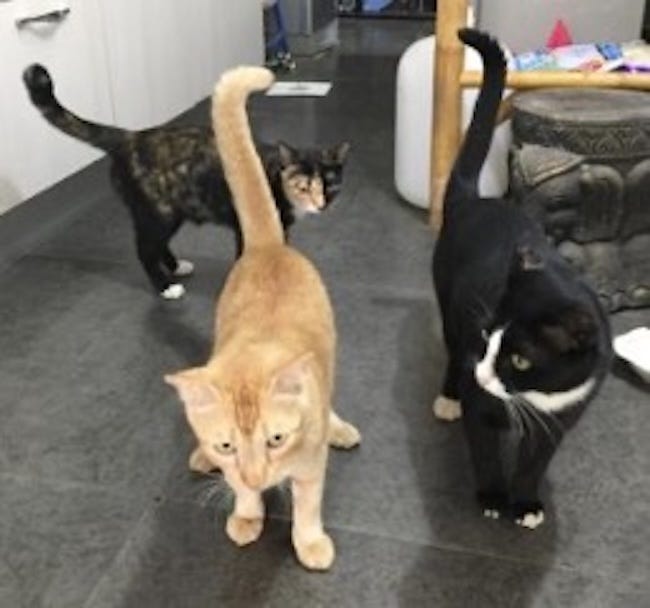
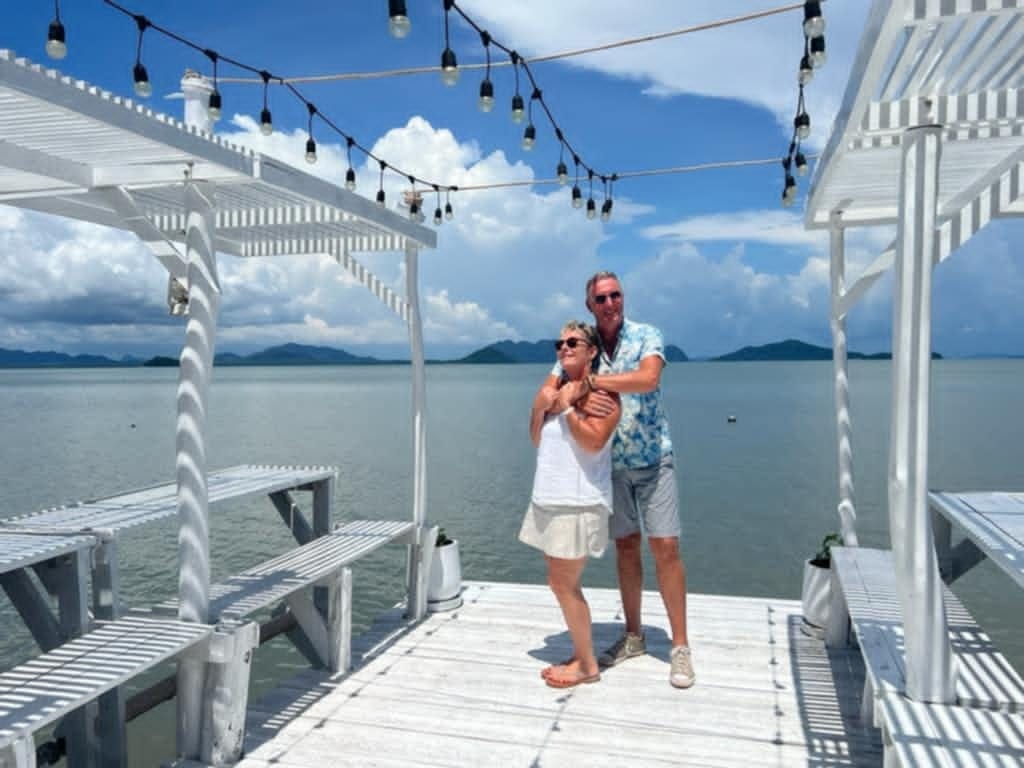


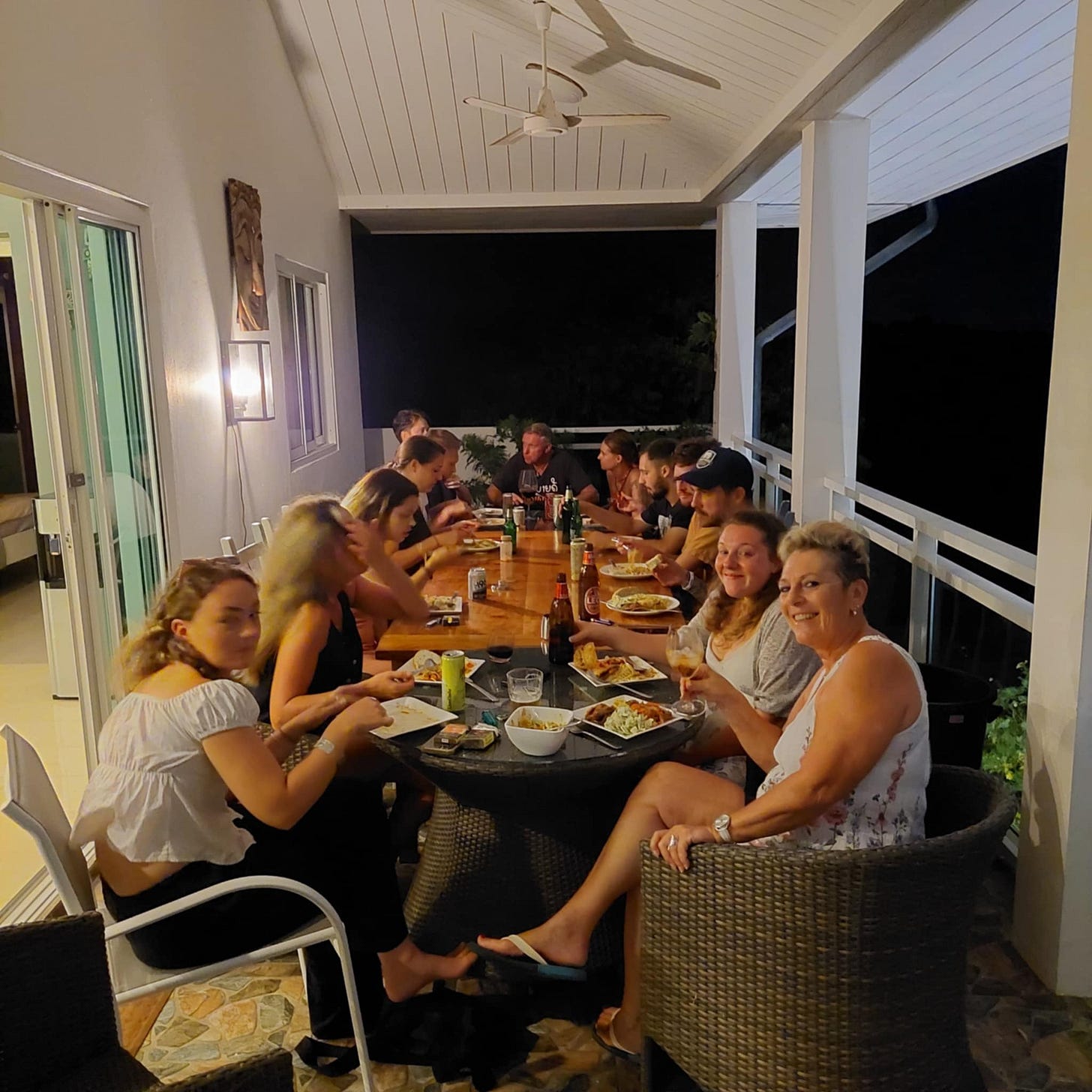

Thank you for writing about age bias. Many people, including my husband were discarded precisely because of gender bias. Companies prefer discarding employees with seniority who have a vast knowledge and experience and replace them with incompetent, inexperienced people because they want to save a dime but in the long run, those companies often fold because of mismanagement or inferior service. I have heard comments like you mentioned and it's so disrespectful. Very valuable article! I mentioned it to many people. Some people don't even recognize or know when they 're being discriminated against due to their age and when they do, they often don't know how to respond.